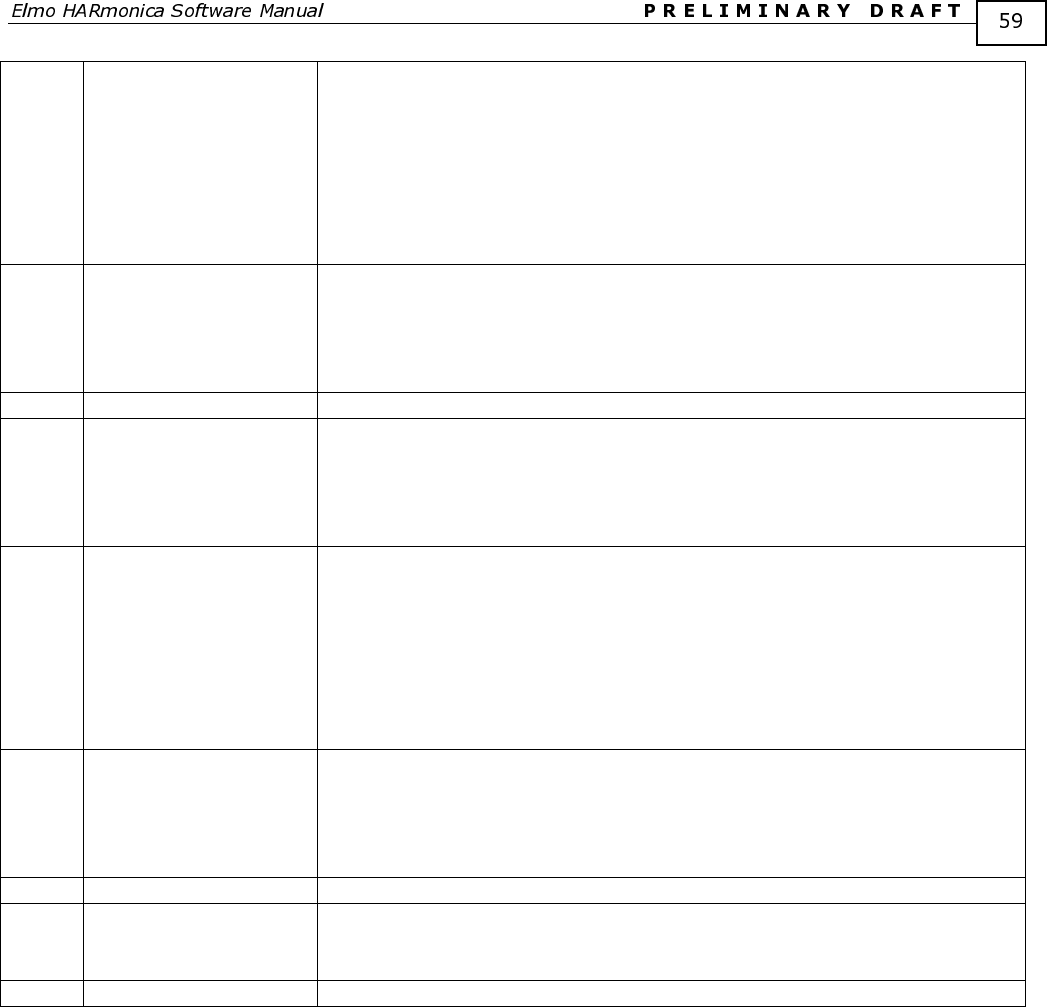
HARSFEN0602
4. Attempt to jump to local label at ‘reset’ statement
For example,
function foo () ** Function definition
… ** Function body
return ** Function end
…
goto ##foo
The last expression is illegal: foo is not label.
75 Illegal nargout The keyword ‘nargout’ is used outside function
For example,
##START ** Label
if nargout > 2
Use the keyword ‘nargout’ outside function
76 Function without body Attempt to call function which is defined but does not have body
77 Bad goto statement After the keyword ‘goto’ must be ## or #@ before the name of a label,
otherwise this error appears.
For example,
goto START
Between ‘goto’ and label name ## oe #@ is absent.
78 Auto routine is local Auto routine is defined as local label.
For example,
function start (int a) ** Function definition
… ** Some code
#@AUTOEXEC
…
return ** Function end
The auto routine AUTOEXEC is defined inside function as local label.
79 Command has 'not
program' flag
Program refers to command that has ‘not program’ falg, i.e. it cannot be used
inside user program.
For example,
LS
Attempt to use in a program the LS command that has ‘not program’ flag.
80 Image file is too long This error occurs if image file length exceeds user code partition size
81 System function tdif is
not supported by the
Harmonica
During evaluation of the wait flow control, the tdif system function is must
be defined inside the Harmonica, otherwise this error appears.
82 Unknown error Unknown error
6.3 Downloading and Uploading a Program
Note: In this step of the program development the communication between Composer and Harmonica must
be established.
After successful compilation the CompileCode.img
may be downloaded to Harmonica.
Composer’s development environment supports the downloading process. Before each download, Composer
automatically clears the memory Flash sector, which is used for saving the user program.
This section describes how the serial flash down/up loads.
The flash is interfaced using two commands:
DL and LS.
Both commands use the assisting command LP.
LP is a vector integer command.
The user flash area may be cleared by the command CP.
The user flash area may be checksum-verified, and program ready flag set, by the CC command.


















